Hyundai Tucson vs VW T-Cross - Differences and prices compared
Compare performance (288 HP vs 150 HP), boot space and price (20900 £ vs 21400 £ ) at a glance. Find out which car is the better choice for you – Hyundai Tucson or VW T-Cross?
Costs and Efficiency:
Price and efficiency are often the first things buyers look at. Here it becomes clear which model has the long-term edge – whether at the pump, the plug, or in purchase price.
Hyundai Tucson has a hardly perceptible advantage in terms of price – it starts at 20900 £ , while the VW T-Cross costs 21400 £ . That’s a price difference of around 497 £.
Fuel consumption also shows a difference: Hyundai Tucson manages with 2.70 L and is therefore convincingly more efficient than the VW T-Cross with 5.40 L. The difference is about 2.70 L per 100 km.
Engine and Performance:
Under the bonnet, it becomes clear which model is tuned for sportiness and which one takes the lead when you hit the accelerator.
When it comes to engine power, the Hyundai Tucson has a convincingly edge – offering 288 HP compared to 150 HP. That’s roughly 138 HP more horsepower.
In acceleration from 0 to 100 km/h, the Hyundai Tucson is slightly quicker – completing the sprint in 7.50 s, while the VW T-Cross takes 8.40 s. That’s about 0.90 s faster.
There’s also a difference in torque: Hyundai Tucson pulls evident stronger with 379 Nm compared to 250 Nm. That’s about 129 Nm difference.
Space and Everyday Use:
Beyond pure performance, interior space and usability matter most in daily life. This is where you see which car is more practical and versatile.
Both vehicles offer seating for 5 people.
In curb weight, VW T-Cross is distinct lighter – 1267 kg compared to 1542 kg. The difference is around 275 kg.
In terms of boot space, the Hyundai Tucson offers noticeable more room – 620 L compared to 455 L. That’s a difference of about 165 L.
When it comes to payload, Hyundai Tucson slightly takes the win – 545 kg compared to 480 kg. That’s a difference of about 65 kg.
Who wins the race in the data check?
The Hyundai Tucson holds a decisive overall lead in the objective data comparison.
This result only shows which model scores more points on paper – not which of the two cars feels right for you.
Costs and Consumption
View detailed analysis
Engine and Performance
View detailed analysis
Dimensions and Body
View detailed analysis

Hyundai Tucson
Hyundai Tucson
Hyundai Tucson marries bold, sculpted looks with a clever, roomy cabin that feels smarter than its price tag suggests. It's composed on the road, easy to live with day-to-day, and a sensible choice for buyers who want SUV style without the showroom theatrics.
details




VW T-Cross
The VW T-Cross turns everyday practicality into a style statement, offering a roomy-feeling cabin, clever storage and playful design that suits town life and family duties alike. On the road it's composed and relaxed, rewarding buyers who want the raised seating and confident presence of an SUV without the weighty compromises.
details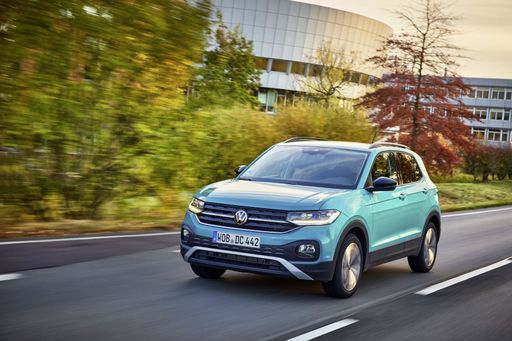
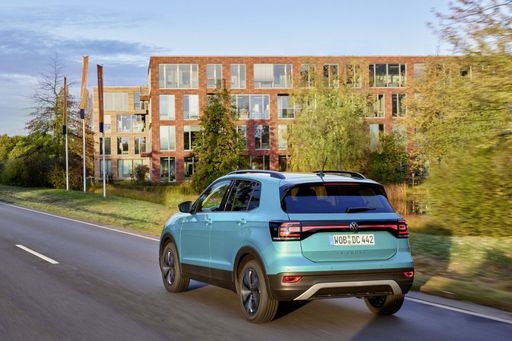
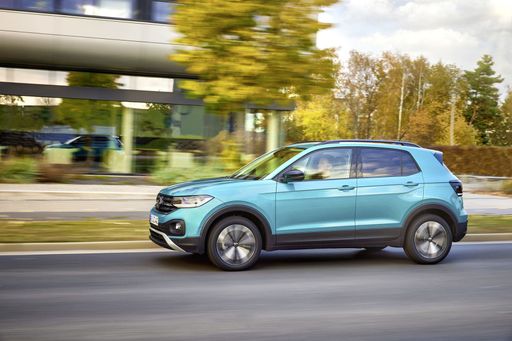
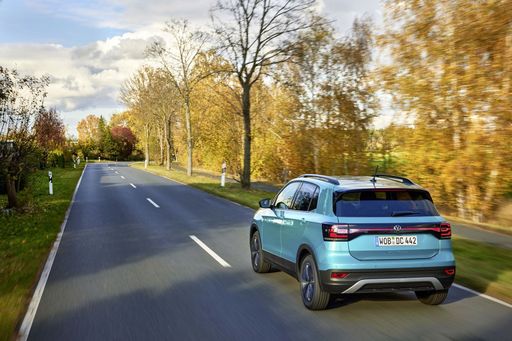
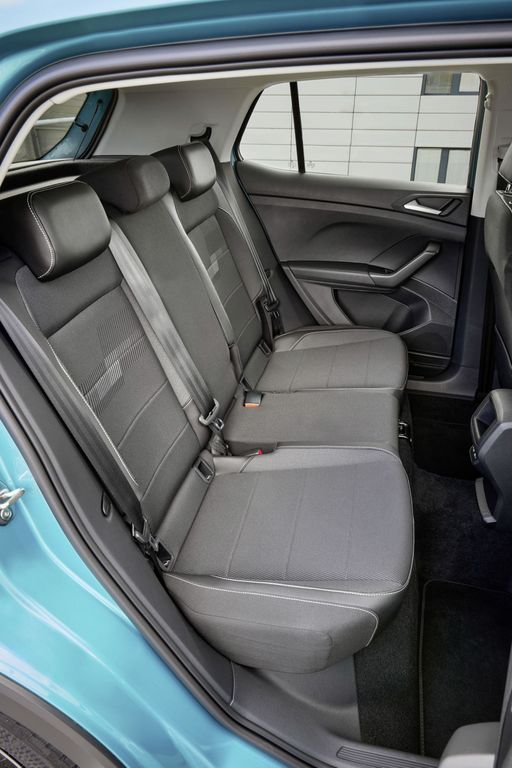
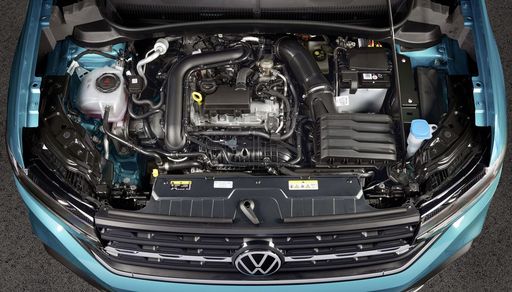
Costs and Consumption |
|
|---|---|
|
Price
20900 - 47900 £
|
Price
21400 - 32000 £
|
|
Consumption L/100km
2.7 - 7.6 L
|
Consumption L/100km
5.4 - 6 L
|
|
Consumption kWh/100km
-
|
Consumption kWh/100km
-
|
|
Electric Range
63 - 70 km
|
Electric Range
-
|
|
Battery Capacity
-
|
Battery Capacity
-
|
|
co2
62 - 172 g/km
|
co2
124 - 136 g/km
|
|
Fuel tank capacity
52 - 54 L
|
Fuel tank capacity
-
|
Dimensions and Body |
|
|---|---|
|
Body Type
SUV
|
Body Type
SUV
|
|
Seats
5
|
Seats
5
|
|
Doors
5
|
Doors
-
|
|
Curb weight
1542 - 1893 kg
|
Curb weight
1267 - 1338 kg
|
|
Trunk capacity
546 - 620 L
|
Trunk capacity
455 L
|
|
Length
4525 - 4535 mm
|
Length
-
|
|
Width
1865 mm
|
Width
1784 mm
|
|
Height
1650 mm
|
Height
-
|
|
Max trunk capacity
1795 - 1799 L
|
Max trunk capacity
-
|
|
Payload
518 - 545 kg
|
Payload
463 - 480 kg
|
Engine and Performance |
|
|---|---|
|
Engine Type
Petrol, Full Hybrid, Plugin Hybrid, Diesel MHEV
|
Engine Type
Petrol
|
|
Transmission
Manuel, Automatic
|
Transmission
Manuel, Automatic
|
|
Transmission Detail
Manual Gearbox, Dual-Clutch Automatic, Automatic Gearbox
|
Transmission Detail
Manual Gearbox, Dual-Clutch Automatic
|
|
Drive Type
Front-Wheel Drive, All-Wheel Drive
|
Drive Type
Front-Wheel Drive
|
|
Power HP
136 - 288 HP
|
Power HP
95 - 150 HP
|
|
Acceleration 0-100km/h
7.5 - 11.6 s
|
Acceleration 0-100km/h
8.4 - 11.3 s
|
|
Max Speed
196 - 204 km/h
|
Max Speed
-
|
|
Torque
250 - 379 Nm
|
Torque
175 - 250 Nm
|
|
Number of Cylinders
4
|
Number of Cylinders
3 - 4
|
|
Power kW
100 - 212 kW
|
Power kW
70 - 110 kW
|
|
Engine capacity
1598 cm3
|
Engine capacity
999 - 1498 cm3
|
General |
|
|---|---|
|
Model Year
2025
|
Model Year
2024 - 2025
|
|
CO2 Efficiency Class
F, D, E, B
|
CO2 Efficiency Class
D, E
|
|
Brand
Hyundai
|
Brand
VW
|
What drive types are available for the Hyundai Tucson?
Available configurations include Front-Wheel Drive or All-Wheel Drive.
